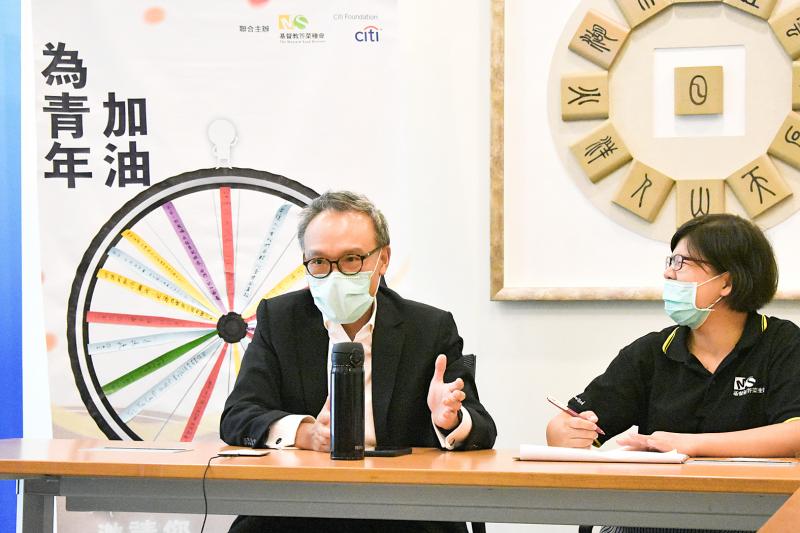Citigroup and the Citi Foundation announced they will make US$35 million philanthropic investments in Asia Pacific by 2023 to advance economic opportunities and employability for youths from low-income and underserved communities. In addition, the bank will offer 6,000 jobs and 60,000 job skills training opportunities for young people in Asia over the next three years.
The regional commitments are part of Citi’s expanded global Pathways to Progress& initiative. This initiative is designed to equip young people with the skills and confidence to improve their employment and entrepreneurship opportunities and make a positive impact in their lives and their communities in rapidly changing economies.
According to the International Labor Organization (ILO), Asia Pacific is home to more than half of the world’s youth population, with 700 million youth aged 15-24. While they represent 20 percent of the total working-age population, this youth segment accounts for almost half of the Asia Pacific’s jobless. The pandemic and resulting economic crisis has further challenged this issue. Projections through the end of 2020 in 13 countries show sizable jumps, with youth unemployment rates doubling the 2019 rate in some cases.

“Communities in Asia Pacific are facing a youth unemployment crisis, especially among low-income and underserved groups, due to the impact of COVID-19. The expanded Pathways to Progress initiative underlines our effort to tackle this urgent issue by equipping and empowering young people with skills to improve their employment outcomes. Young people are key to Asia Pacific’s COVID-19 recovery and this investment will help them advance their economic opportunities and support inclusive growth in the region,” said Peter Babej, Citi’s Asia Pacific CEO.
On its employment and training, Citi has committed to offer 6,000 jobs and 60,000 skills training opportunities across Citi’s retail and institutional businesses in Asia Pacific over the next three years, through its summer internship program, full-time analyst and associate roles, on-campus programs and opportunities with Citi University Partnerships in Innovation & Discovery (CUPID) Program.The CUPID program engages diverse students on a range of innovation projects across the company.To provide students with the opportunity to experience banking despite the pandemic, Citi Asia Pacific launched a first-of-its-kind Virtual Reality Intern Experience program, open for enrolment to students around the world.
In Taiwan, Citi continues to focus on development programs for Taiwan’s youths. Paulus Mok, Chairman of Citibank Taiwan, said Citi Taiwan has cooperated with local social welfare organizations to launch all-round development programs for new graduates, college students and young people from disadvantaged families. The initiatives are aimed at helping the youths enhance their entrepreneurial thinking, leadership, financial management and professional skills through career exploration, skills training, and employment consulting. Since 2016, Citi Taiwan has invested over NT$40 million to help more than 1,000 young people aged 16-24 to successfully land their very first job.
Citi Taiwan will further expand the development programs to high schools and promote English debate education on the campus. This unique initiative will train the students to enhance their English communication skills and independent thinking capability, have an international perspective, and boost their own competitiveness in this globalized era.

Hong Kong authorities ramped up sales of the local dollar as the greenback’s slide threatened the foreign-exchange peg. The Hong Kong Monetary Authority (HKMA) sold a record HK$60.5 billion (US$7.8 billion) of the city’s currency, according to an alert sent on its Bloomberg page yesterday in Asia, after it tested the upper end of its trading band. That added to the HK$56.1 billion of sales versus the greenback since Friday. The rapid intervention signals efforts from the city’s authorities to limit the local currency’s moves within its HK$7.75 to HK$7.85 per US dollar trading band. Heavy sales of the local dollar by

Taiwan Semiconductor Manufacturing Co’s (TSMC, 台積電) revenue jumped 48 percent last month, underscoring how electronics firms scrambled to acquire essential components before global tariffs took effect. The main chipmaker for Apple Inc and Nvidia Corp reported monthly sales of NT$349.6 billion (US$11.6 billion). That compares with the average analysts’ estimate for a 38 percent rise in second-quarter revenue. US President Donald Trump’s trade war is prompting economists to retool GDP forecasts worldwide, casting doubt over the outlook for everything from iPhone demand to computing and datacenter construction. However, TSMC — a barometer for global tech spending given its central role in the

The Financial Supervisory Commission (FSC) yesterday met with some of the nation’s largest insurance companies as a skyrocketing New Taiwan dollar piles pressure on their hundreds of billions of dollars in US bond investments. The commission has asked some life insurance firms, among the biggest Asian holders of US debt, to discuss how the rapidly strengthening NT dollar has impacted their operations, people familiar with the matter said. The meeting took place as the NT dollar jumped as much as 5 percent yesterday, its biggest intraday gain in more than three decades. The local currency surged as exporters rushed to

PRESSURE EXPECTED: The appreciation of the NT dollar reflected expectations that Washington would press Taiwan to boost its currency against the US dollar, dealers said Taiwan’s export-oriented semiconductor and auto part manufacturers are expecting their margins to be affected by large foreign exchange losses as the New Taiwan dollar continued to appreciate sharply against the US dollar yesterday. Among major semiconductor manufacturers, ASE Technology Holding Co (日月光), the world’s largest integrated circuit (IC) packaging and testing services provider, said that whenever the NT dollar rises NT$1 against the greenback, its gross margin is cut by about 1.5 percent. The NT dollar traded as strong as NT$29.59 per US dollar before trimming gains to close NT$0.919, or 2.96 percent, higher at NT$30.145 yesterday in Taipei trading